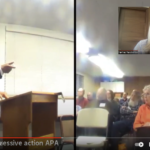Political Action Team
The Political Action Team exists to monitor local and statewide political decisions and candidates that affect the residents of Colorado. The team seeks to educate local, state, and federal officeholders about progressive issues and inform the populace about where politicians stand on issues and how they can effect change.







